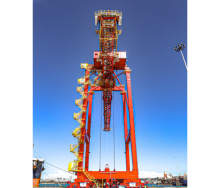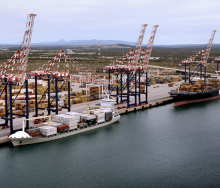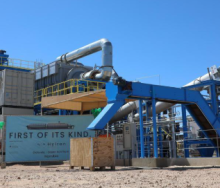A perishables permit that was introduced by Namibia’s Ministry of Agriculture, Water and Land Reform (MAWLR) has freight forwarders concerned that the ‘trade barrier’ could ruin the shipment of imported poultry mostly destined for the Democratic Republic of the Congo (DRC).
According to three forwarding concerns spread between the Port of Walvis Bay and Windhoek, the Namibian Veterinary Import Permit for Conveyance In-Transit was introduced on December 6 without any prior consultation between the MAWLR and private-sector interests.
This has been confirmed by a circular from the US Department of Agriculture (USDA) sent out shortly after the permit’s introduction was announced.
According to the USDA, although the new requirements were shared with local importers, there was no official communication with America’s Foreign Agricultural Service in Pretoria.
The USDA furthermore wanted to know if Namibia intended to “notify the World Trade Organization” about its decision, which forwarders saying is in contravention of stipulations promoted by the World Health Organization.
However, more than three months since the permit was introduced and the MAWLR remains unbowed.
The department’s minister, Calle Schlettwein, has dug his heels in and apparently remains unapproachable about a development that forwarders say could cost Namibia’s transit sector dearly.
Word on the ground is also critical of the Windhoek State Veterinary Office for its apparent refusal to entertain complaints that the permit is an excessive attempt to prevent the possibility of an avian flu outbreak in Namibia.
Apart from the cost of 3 000 Namibian dollars (N$) per permit, forwarders have to courier the necessary documentation at additional costs to shippers at source who then have to return the originals to cargo agents in Namibia.
“It’s killing business,” said one forwarder in Walvis Bay.
“And it doesn’t make sense. The countries we deal with sending chicken through our port to the DRC have already indicated that they will divert cargo to ports like Beira, rather than comply with the permit.”
Another forwarder said they had already accumulated losses of about N$20 million, not necessarily because of costs directly related to the permit, but because of lag time introduced into the supply chain by the permit.
The USDA said: “The Walvis Bay port is an important entry point for US poultry that is destined for the DRC.
“In 2021 the DRC imported 33 536 tonnes of US poultry and products valued at 35 million USD.”
Forwarders are united in their opposition to the permit, saying it’s regrettable that the government of President Hage Geingob is constraining the movement of inbound transit cargo on the Walvis Bay-Ndola-Lubumbashi Development Corridor while trying to increase throughput at Walvis, currently stuck at about 25% of capacity.
“This has come at a very bad time for us,” a forwarder said.
“Unless they rethink things, perishable logistics through Namibia could lose millions in revenue.”
It is understood that the Container Liner Operators Forum and the Walvis Bay Corridor Group are currently intervening on behalf of the logistics industry.
* Don’t miss our special feature on Namibia’s logistics sector, out on 19 May.













